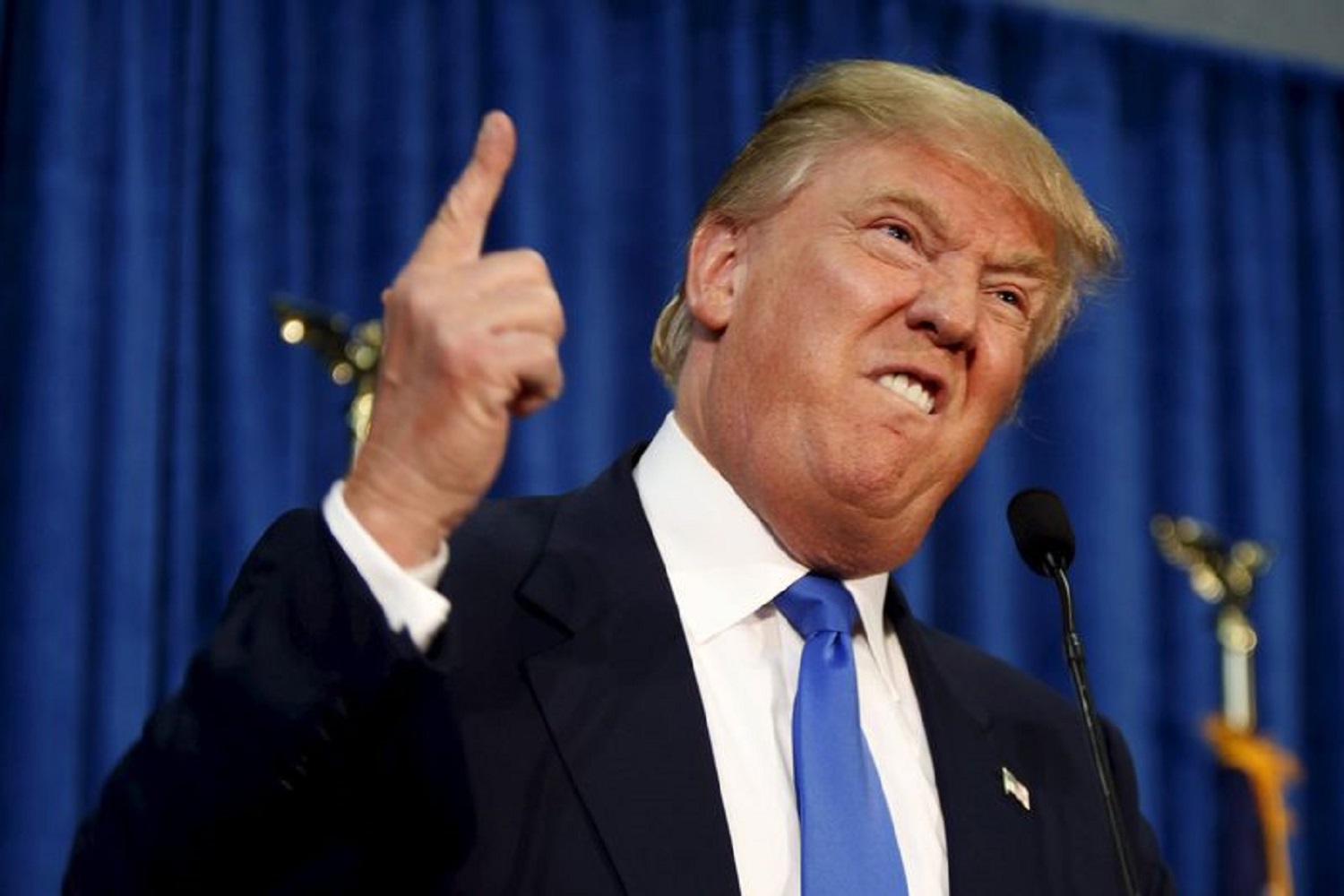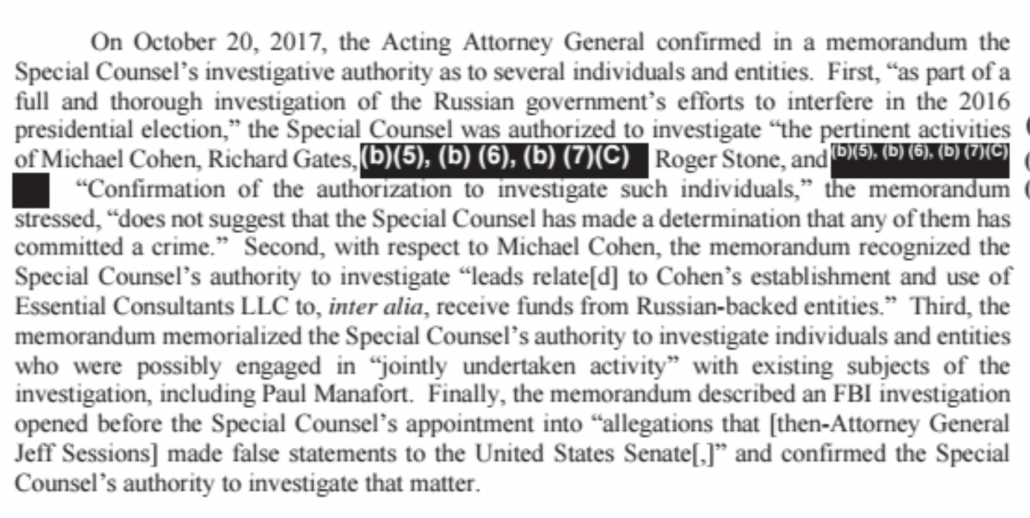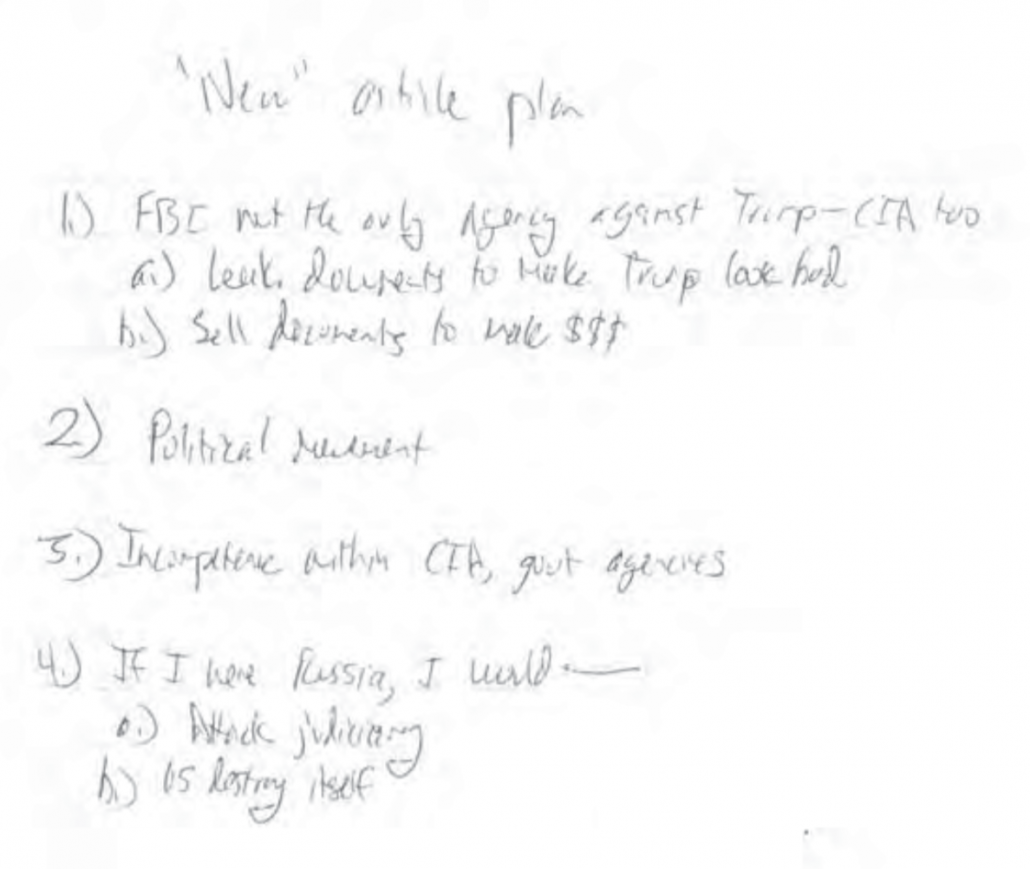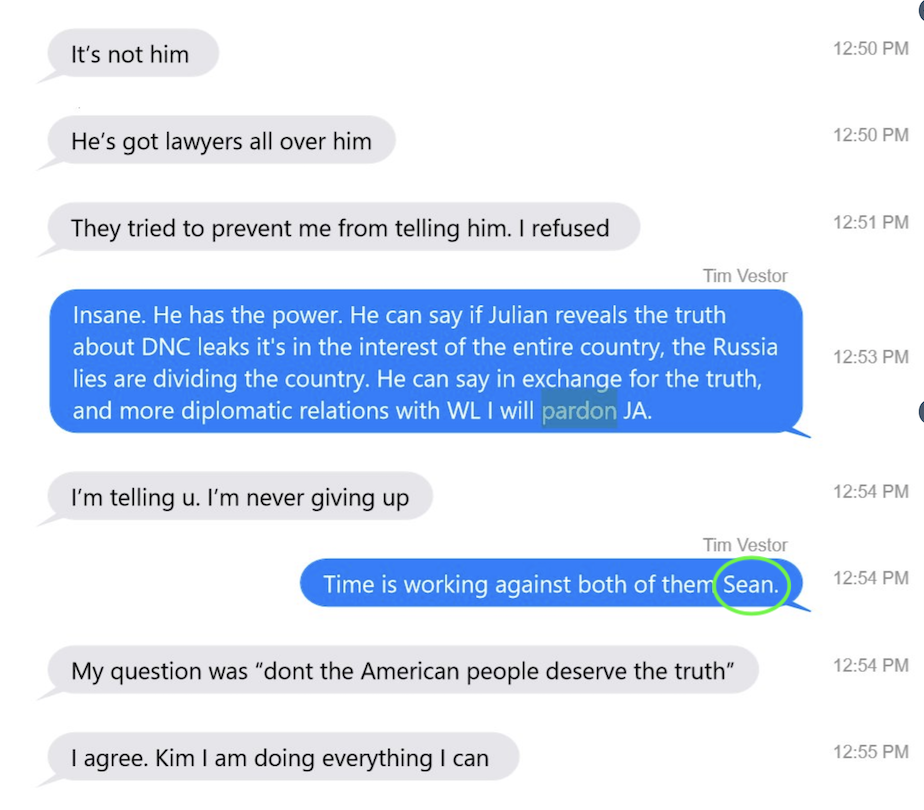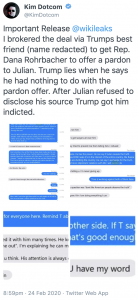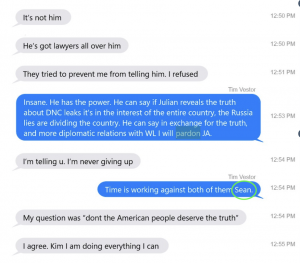In a conflict between some of the worst people in the world, Roger Stone, Jerome Corsi, and Larry Klayman have all been in the news of late. That’s because on February 12 and 13, Klayman deposed Stone in lawsuits he and Corsi filed against Stone for defamation — basically, for tarnishing their reputation with the frothy right. I tweeted out some of the highlights of the painful deposition here. Politico edited some highlights of the video for this story. Then last night, Judge Timothy Kelly dismissed Corsi’s suit without prejudice, finding venue improper (meaning Corsi can refile it in Florida).
On top of some crazy, bitter exchanges there are some interesting details, such as that Jack Posobiec is the person who introduced Cassandra Fairbanks to Stone during the 2016 campaign, though Stone claims not to remember when that happened. There are also some curious claims (such as, at February 12 16:10 and following, that Stone has rarely deleted any comms); during Stone’s trial, an FBI agent testified they had never obtained any texts Stone sent from roughly November 2016 to November 2017, though Klayman asked Stone whether he had lost or replaced a phone that might address that, except he focused on just the last two years. There’s some debate over how to pronounce “Judas Iscariot” and “Nevada.” There’s a lot of potty mouth. There are claims Stone made — under oath, days before being sentenced for lying to Congress — that probably wouldn’t stand up to the scrutiny of a prosecutor with a grand jury.
But I wanted to examine a key issue behind the dispute. In his lawsuit, Corsi alleged that Stone defamed him by falsely accusing him of lying about writing a report that would serve as a cover story for his August 21, 2016 tweet about John Podesta.
18. At 2:27 in the InfoWars Video, Defendant Stone falsely and misleadingly publishes that, “He (Corsi) was perfectly willing to lie, to perjure himself saying that a memo that he had wrote me was written on the 30th for the purposes of cover-up…. which is further proof that Jerry lied under oath.”
19. At 2:55 in the InfoWars Video, Defendant Stone falsely and misleadingly publishes, “and then states that I knew about John Podesta’s emails being stolen in advance, the only proof of that is Jerry’s feeble alcohol affected memory – it’s a lie….”
20. At 3:35 in the InfoWars Video, Defendant Stone falsely and misleadingly publishes that “Jerry was prepared to stab a principle Trump supporter in the back, he was perfectly prepared to bear false witness against me, even though I had done nothing in my entire life other than help him.”
That is, Corsi’s lawsuit claims that Stone falsely accused him of perjuring himself when he gave damning testimony about Stone to Mueller’s prosecutors; that false accusation, Corsi argues, has damaged his reputation with the frothy right.
The dispute pertains to a report Corsi wrote — which Stone submitted (PDF 39) as part of the materials he shared with the House Intelligence Committee, and which is dated August 31, 2016, not August 30 — explaining why he and Corsi had been focused on Podesta on August 21 when Stone tweeted that it would soon be Podestas’ time in the barrel.
Here’s how Corsi explained that report in his book.
In my late evening telephone call with Stone on August 30, 2016, I suggested Stone could use me as an excuse, claiming my research on Podesta and Russia was the basis for Stone’s prediction that Podesta would soon be in the pickle barrel. I knew this was a cover-story, in effect not true, since I recalled telling Stone earlier in August that Assange had Podesta emails that he planned to drop as the “October Surprise,” calculated by Assange to deliver a knock-out blow to Hillary Clinton’s presidential aspirations.
On my birthday, August 31, 2016, I emailed to stone at 4:49 p.m. EST a nine page background memorandum on John Podesta that I had written that day at Stone’s request. I couched the Podesta background paper as a rejoinder Stone could use to counter a report CNN published August 15, 2016, entitled “Manafort named in Ukrainian probe into millions in secret cash.”30 The CNN article highlighted the FBI had begun an investigation of former Trump campaign chairman Paul Manafort for his financial dealings regarding the consulting he had conducted for former Ukraine president Victor Yanukovych.
At Roger’s request, after a telephone conversation in March 2017 that I vaguely recall from memory—I have no recording or notes from the conversation—Roger asked me to write an article how he got his information for his Twitter post on August 21, 2016. Roger and I agreed once again that the Tweet was unspecific as to why Stone believed Podesta would be in the pickle barrel. That allowed us once again to roll out the cover-story that Stone based his comment on background information I provided Stone from public source materials on Podesta’s financial dealings in Russia while Hillary was secretary of state.
[snip]
Stone used the cover-story excuse again when he testified under oath to the House Intelligence Committee on September 26, 2017. In that testimony, Stone claimed his “pickle barrel” Tweet was based on “a comprehensive, early August opposition research briefing provided to me by investigative journalist, Dr. Jerome Corsi, which I then asked him to memorialize in a memo that he sent me on August 31st, all of which was culled from public records.” To stress the point, Stone attached to his testimony a copy of my background research memorandum on Podesta.
In the deposition (at February 12 at 13:14 and following) Stone defended against those claims by affirming under oath that Corsi’s testimony to Mueller’s prosecutors and the grand jury was false.
Klayman: What statement did Dr. Corsi ever make that stabbed you in the back?
Stone: The previous one that you just stated, for example. Regarding a memo that he incorrectly said that he wrote to give me a cover story at a time that I needed no cover story because the controversy regarding John Podesta’s emails, which was never mentioned in the indictment whatsoever, would not happen until six weeks after he had written said memo. So it’s just patently false.
Klayman: But you were not indicted by the Special Counsel for a cover story. You were indicted because you testified falsely to Congress, correct?
Robert Buschel (Stone’s attorney): Let’s not get into the indictments and the whole trial thing. The answer to your question, um, you know what he was indicted for.
Klayman: I’ll ask the question a different way. There’s no aspect of your indictment that deals with a cover story by Doctor Corsi on your behalf.
Buschel: It calls for a legal opinion.
Stone: No. But he certainly said that on numerous interviews and in public. So I certainly have the right to respond to it. It’s not true.
Stone makes similar comments after 16:05.
It did get quite a bit of press. As you recall Mr. Corsi went out and did a press tour in which he claimed that he had created some memo as a cover story. I suspect that that was suggested to him because it just wasn’t true.
[snip]
He portrayed a number of falsehoods in those interviews, which is certainly reason to believe that somebody had suggested this falsehood to him, since it is chronologically impossible for him to have created a memo as a cover story because there was nothing to cover.
Ultimately, we’ve got a rat-fucker and a hoaxster, arguing about which one of them perjured themselves (Corsi in the Mueller grand jury or Stone in this sworn deposition) regarding this report.
The record, though, backs Corsi’s story. Even though prosecutors presented little evidence involving Corsi at trial (both sides subpoenaed Corsi but neither side put him on the stand), the exhibits did include several pieces that suggest something substantive did occur on August 15, the date Corsi’s alleged cover story would explain away, and the first time Stone ever mentioned Podesta in a tweet.
- July 25, 2016 Stone email to Corsi telling him to “Get to Assange” at the embassy to “get the pending wikileaks emails”
- July 31, 2016 Stone email to Corsi telling him to call MON (August 1) and that Malloch should see Assange
- August 2, 2016 Corsi email to Stone explaining “word is friend in embassy plans 2 more dumps. One shortly after I’m back. 2nd in Oct. … Time to let more than Podesta to be exposed as in bed with enemy if they are not ready to drop HRC.”
- August 13, 2016 Corsi text to Stone directing, “I’m now back from Italy. Give me a call when you can.”
- August 15, 2016 Corsi text to Stone directing, “Give me a call today if you can. Despite MSM drumroll that HRC is already elected, it’s not over yet. More to come than anyone realizes.”
- August 15, 2016 Corsi email to Stone repeating the same message he had texted, “Give me a call today if you can. Despite MSM drumroll that HRC is already elected, it’s not over yet. More to come than anyone realizes.”

In addition, there were exhibits that made it clear Corsi was aware that Stone was covering things up:
- March 24, 2017 email from Stone to Corsi (and Gloria Borger) forwarding the letter Robert Buschel sent to HPSCI; Buschel sent this letter two days after Corsi and Stone spoke about publishing the cover story and the day after Corsi did so
- November 30, 2017 email thread between Corsi and Stone, in which Corsi responded to Stone’s request that Corsi write about Stone’s claim that Credico was his back channel by advising, “Are you sure you want to make something out of this now? … You may be defending ourself too much–raising new questions that will fuel new inquiries. This may be a time to say less, not more.”
- April 3, 2018 email from Stone lawyer Grant Smith to Stone and cc’ing Corsi explaining that “At Roger’s request” he was forwarding “the only 2 emails on the subject between the two of you;” the subject line was “Emails about Finding information,” attached the July 25 and July 31, 2016 emails, and were sent in the wake of a surprised Ted Malloch interview and one day before Stone insisted to Credico he was the source of everything Stone learned about the WikiLeaks disclosures
Prosecutors would also have had an email Stone sent Corsi on August 30, 2016, record of Corsi’s call in response, and Corsi’s Google searches showing that he didn’t start the research for the report until after that exchange. So contrary to later claims from Corsi, prosecutors had proof that he didn’t start the report until after Stone’s August 21, 2016 tweet. Plus, before the WikiLeaks files were released in October 2016, Corsi seemed to know what they’d contain. Corsi and Stone would use that August 2016 report twice more to try to explain away Stone’s seeming advance knowledge.
Perhaps most interesting, however, is Corsi’s Mueller testimony on November 1, 2018 (PDF 34) that a column he wrote on October 6, 2016 — seemingly anticipating that WikiLeaks would soon dump emails including details about John Podesta’s ties to Joule holdings — was an attempt to force Assange to publish the emails he had not released on October 4, 2016.
Corsi published the August 31, 2016 memo on October 6, 2016. At that time, he still held himself out as the connection to WikiLeaks. The trigger for the release of the article was the publication of an article about [Paul] Manafort and [Viktor] Yanukovych. Corsi wanted to counter it with a story about Podesta, but he really wanted to provide stimulus to Assange to release whatever he had on Podesta. Corsi was angry with Assange for not releasing emails on October 4, 2016.
This was a column that got sent to the campaign between the time it was posted and when WikiLeaks dumped the emails. Posting a story on Podesta wouldn’t really “provide stimulus to Assange to release whatever he had on Podesta” unless Corsi knew that what he had pertained to Podesta.
Two of the most shameless right wing liars are in a nasty fight that — in another world — could have real legal consequences over what the two agreed to cover up with a series of lies told over three years ago.

